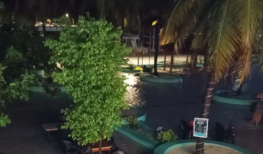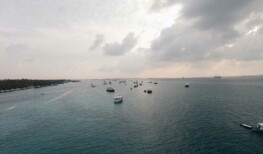Year in Review – Top News Events of 2024
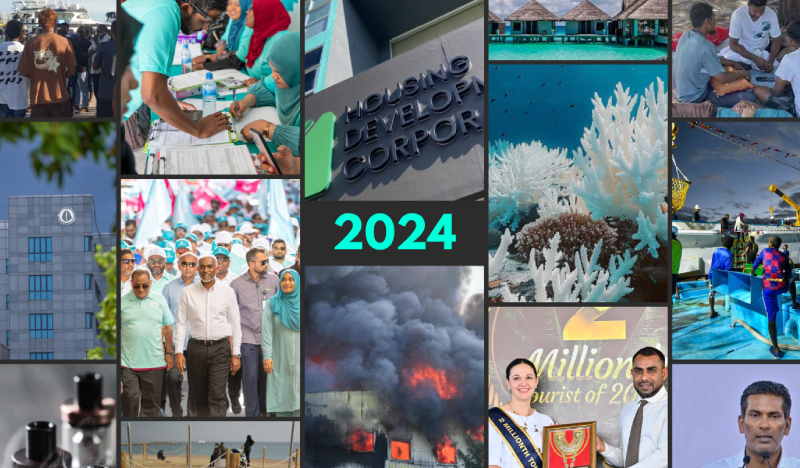
From political shakeups to environmental challenges and record-breaking achievements, 2024 was a year that kept the Maldives on its toes. Over the course of 366 days, we covered stories that captured the nation’s attention, from political dramas to environmental crises and milestones in tourism. Now, as we enter a new year, here’s our recap of the top news stories that made headlines in 2024.
January – Anti-India Comments Cause Diplomatic Stir
The year began with the new administration, headed by President Dr. Mohamed Muizzu and his Progressive National Congress (PNC), having been in office for just over a month. The administration took several early missteps, most notably early in January when the government faced a diplomatic debacle when two deputy ministers, Malsha Shareef and Mariyam Shiuna, made derogatory remarks against Indian Prime Minister Narendra Modi on social media.

The comments were met with backlash from Modi’s government and calls to boycott Maldives as a tourist destination. Muizzu was forced to suspend both deputy ministers and issue a statement clarifying that the remarks were personal opinions and not those of his administration. Nevertheless, this led to months of diplomatic tension and a steady decline in Indian tourist arrivals to the Maldives in 2024.
April – Ruling Party Sweep Parliamentary Elections
The delayed parliamentary elections took place in April, and the ruling coalition led by the People’s National Congress gained an overwhelming majority of 66. PNC saw its numbers increase to 75 when 9 of the 11 independents also signed for the ruling party. The opposition MDP suffered a humbling defeat, securing only 12 seats in the 93-seat chamber.
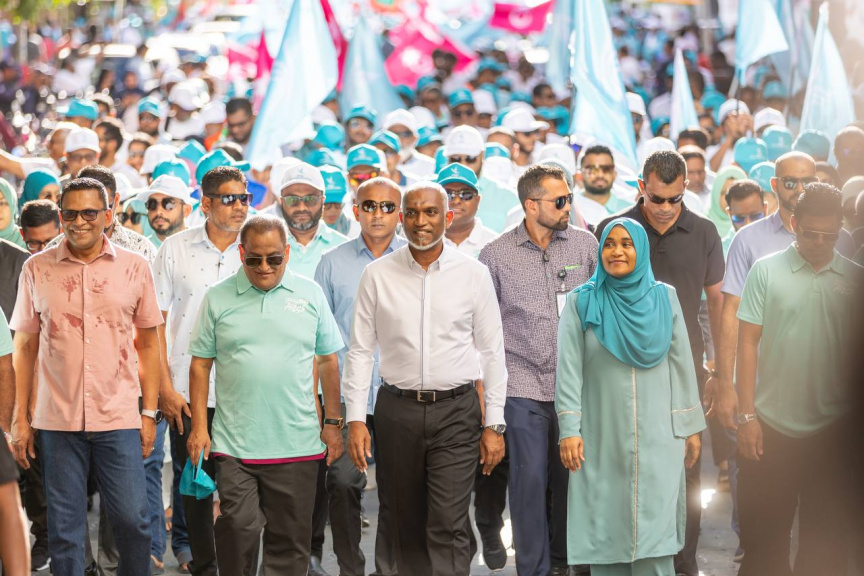
May – Maldives Battles Mass Coral Bleaching Event
The months of April and May saw the Maldives experience scorching hot temperatures. A rise in sea surface temperatures, brought on by the El Nino, resulted in a mass coral bleaching event threatening the coral reefs of Maldives. Coral Reef Watch issued the highest Level 1 alert level for Maldives.
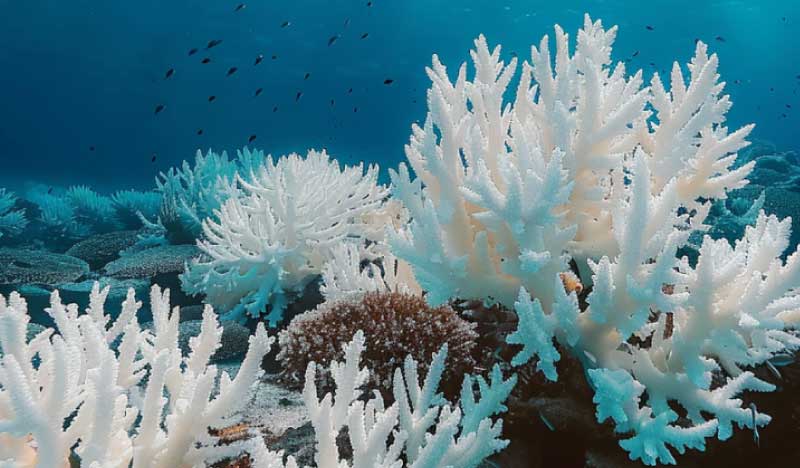
Following this, the Environmental Protection Agency (EPA) took the unprecedented step of ordering a suspension of coastal development projects in the country to reduce additional stress on coral reefs.
June – Fishermen Protest Over Payment Delays
May, June and July also saw fishermen across the Maldives protest over payment delays, reduced fish prices, and government plans to open the long-line fishery for yellow-fin tuna. Frustrations of fishermen in the south boiled over in June when protesting fishermen came out and shut down the MIFCO’s Addu Fisheries Complex in Hulhumeedhoo.
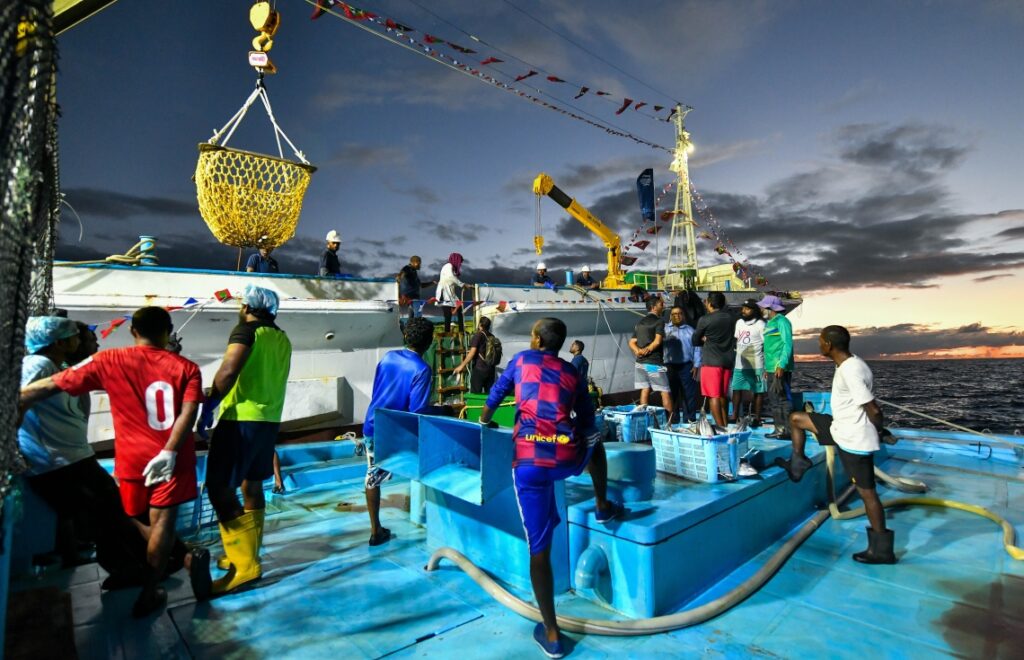
October – Dollar Regulations and Ban on Vaping
The second half of the year saw the administration, backed by its parliamentary supermajority, more on the front foot to implement its policy agenda.
In October, the Maldives Monetary Authority (MMA) introduced unprecedented regulations to govern foreign currency. It required tourism businesses to deposit their dollar income to local banks and for a portion of the dollars to be exchanged through a local bank.
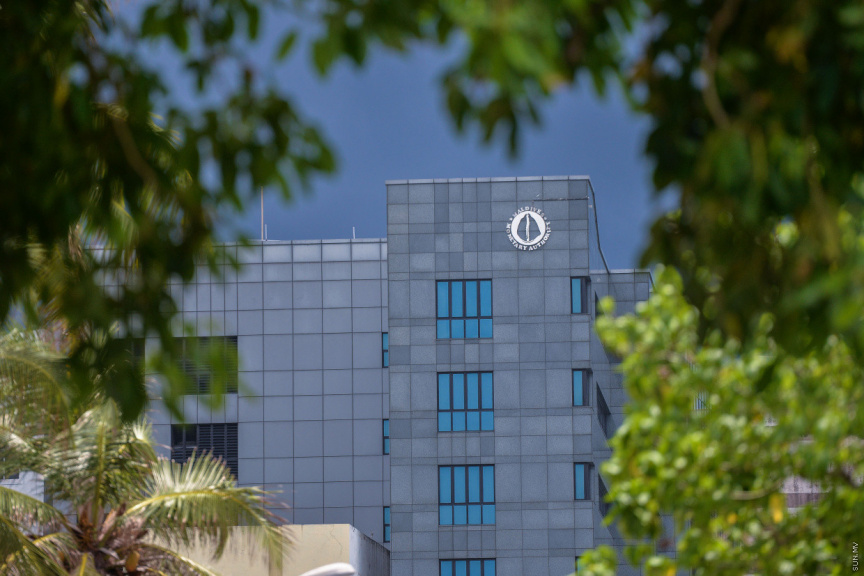
The regulation was met with heavy pushback from the tourism industry. Still, Muizzu remained defiant in the face of a looming financial crisis and insisted on enforcement of measures that would boost foreign currency flow in the country. The measures have now been codified in a law that granted additional options to tourism businesses.
In October, President Muizzu also announced a set of policies to curb smoking. The import, sale and possession of vaping products would be banned, and import duties for tobacco products would be raised. The changes came into force in phases in November and December.

November – Controversial Constitutional Amendments
On 20th November, the ruling coalition flexed its parliamentary super-majority by controversially pushing through a series of constitutional amendments in an extraordinary 24-hour period.
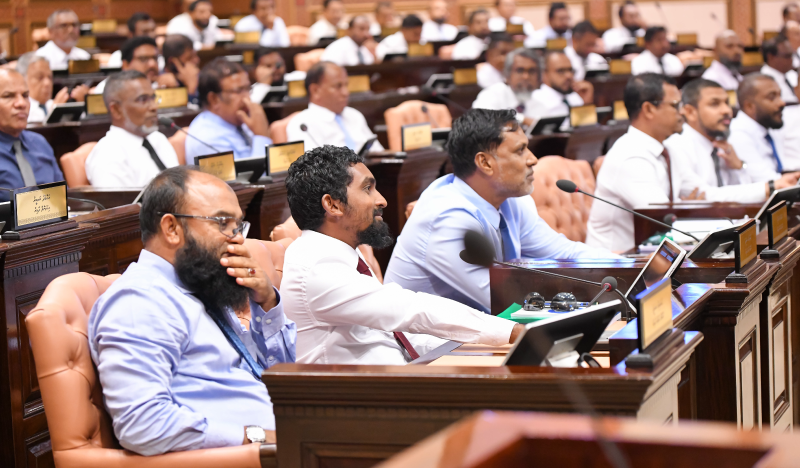
The constitutional changes include provisions banning MPs from floor crossing, expanding the executive powers of the president to formulate development plans, and specifying parliamentary role in approving changes to Maldive’s jurisdiction boundaries and foreign military presence. The speed and manner of the legislative process over crucial constitutional changes drew criticism from the opposition and civil rights groups.
December – Fire, Corruption and Two Million Tourists
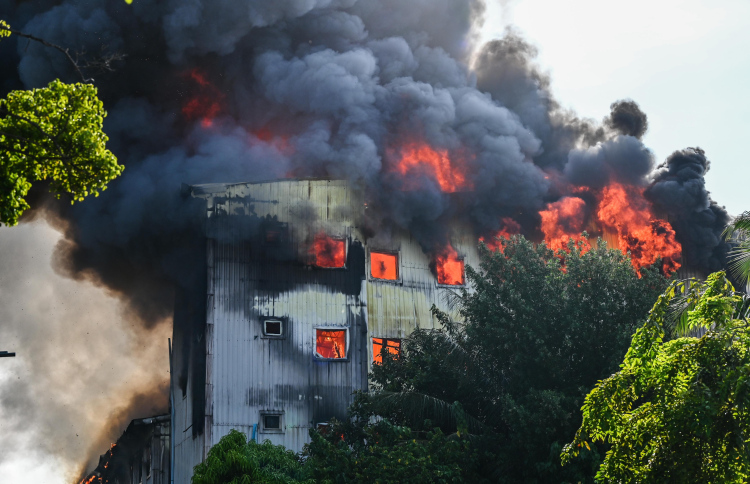
A major fire broke out in a government office complex in the capital, Male city, in December, destroying the offices holding the Ministry of Housing, Land and Infrastructure, Ministry of Climate Change, Environment Energy, and Male City Council.
Also in December, the first major corruption scandal involving senior government officials was exposed, as leaked documents revealed that the brother of Housing Development Corporation’s Managing Director Fazul Rasheed, had used forged documents to illegally obtain plots of land in Hulhumale under the Binveriyaa scheme.

The fallout from the scandal saw Fazul resign from his position. Several senior officials of the state-owned company were suspended as both the police and Anti-Corruption Commission launched investigations.

And finally, last week, the Maldives welcomed the two millionth tourist in 2024, reaching a milestone set by the government for the year. Following the development, the government set a target of achieving a 15 per cent growth in tourism receipts in 2025.




